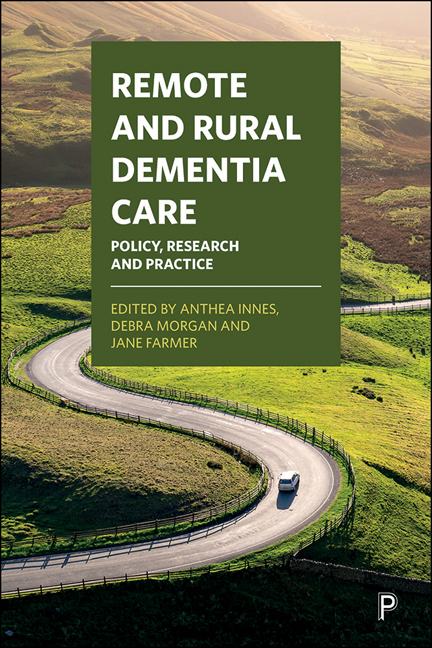10 - Transportation Issues in Dementia
Published online by Cambridge University Press: 10 March 2021
Summary
Introduction
Transportation is a key aspect of mobility and quality of life for older adults, and this remains true for people living with dementia who are often isolated and cut off from family, friends and social services when driving a car becomes unfeasible or unsafe. Most research on driving and other transportation options for people living with dementia is undertaken in urban settings, and services and solutions that work in urban areas may not translate into rural settings where people with dementia have particular challenges in remaining connected without a vehicle. In this chapter, we bring together perspectives from Canada and the UK on the topic of transportation for people with dementia. We review the transportation needs of older adults, the road risks that arise when people with dementia drive cars, and the risks to the quality of lives of those with dementia when they stop driving. We review the information that is available on this topic for those living in rural settings. Although there have been no universal solutions proposed to the particular challenges of transportation needs for those living in rural areas with dementia, we discuss an innovative national approach that is under way in Scotland, one of the few places to have addressed transport needs of people with dementia and other disabilities living in remote areas. This is truly a nascent area in which there are significant limitations to the literature. We hope to summarise what is known and provide some thoughts on helpful future directions.
Transportation needs in older adulthood
It is interesting to compare the Canadian and Scottish contexts since, albeit different in size, both countries have large rural populations. As we discover in this section, both countries show similar trends of increasing dependence on the car, ageing populations, and growing numbers of people living with dementia.
Canadian data
Driving is by far the primary mode of transportation for older adults in Canada. According to a recent survey, more than two thirds of adults age 65– 74 years, and just less than a third aged 85 rely on driving their own vehicle as their primary means of transportation (The Conference Board of Canada, 2016).
- Type
- Chapter
- Information
- Remote and Rural Dementia CarePolicy, Research and Practice, pp. 213 - 240Publisher: Bristol University PressPrint publication year: 2020



